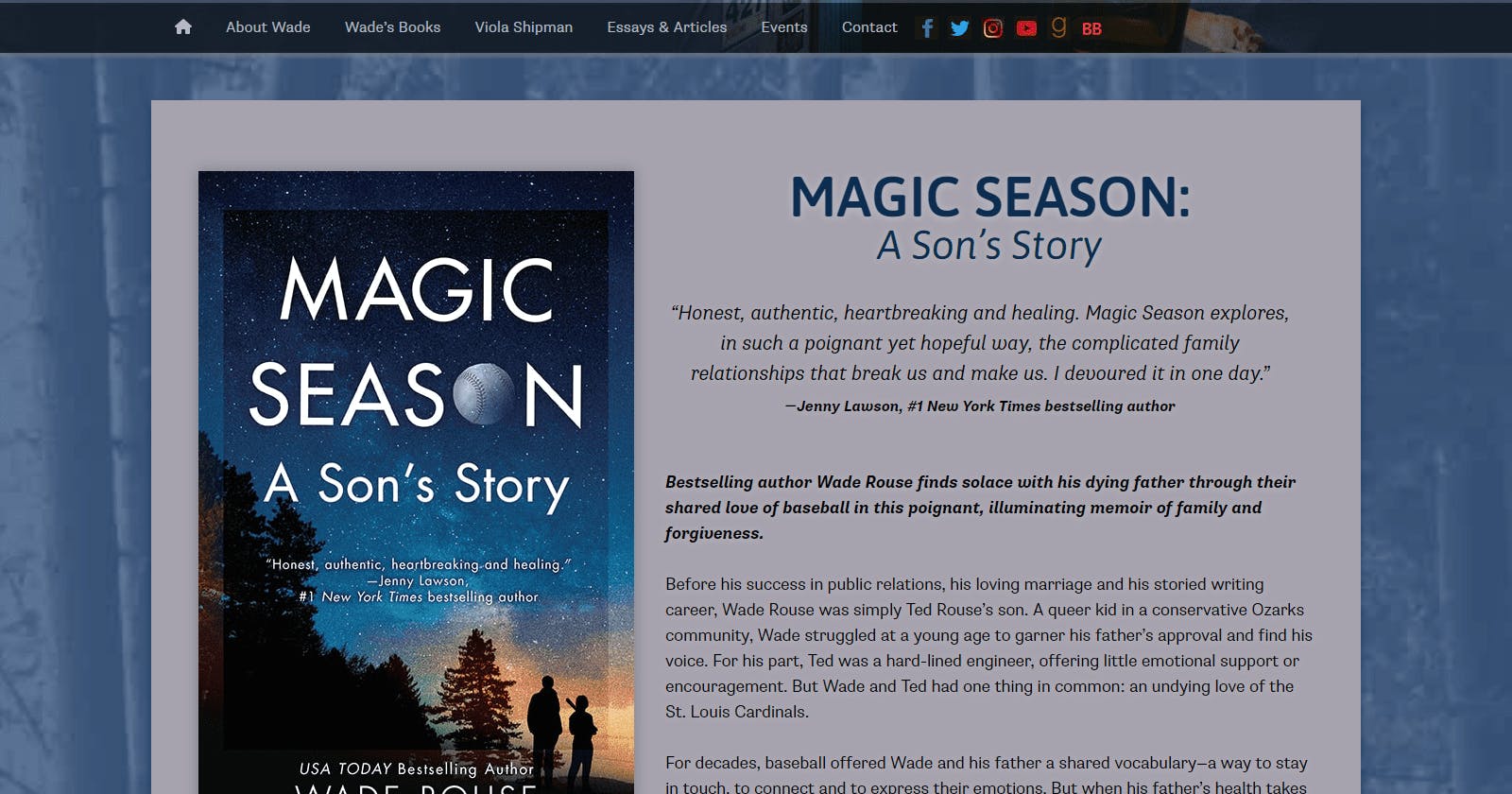Introduction
In today's digital age, authors wield a powerful tool to connect with readers: the author website. The design of these websites holds immense significance in shaping the reader's perception and fostering engagement. As writers, we yearn not only to enlighten but also to captivate our audience, and an author website serves as the cornerstone of this endeavor. Let's delve into the intricacies of author website design and explore how it can amplify your literary presence.
Author Website Design: Crafting Your Digital Identity
Crafting an author website design is akin to constructing a virtual sanctuary where readers can immerse themselves in your literary universe. From the layout to the content, every facet of your website should exude your unique voice and vision. Here are some key elements to consider:
1. Homepage: Your Digital Welcome Mat
Your homepage is the first impression you make on visitors. It should be visually appealing, with concise yet compelling snippets that offer a glimpse into your literary world.
2. Navigation: Guiding the Reader's Journey
Intuitive navigation is paramount for ensuring a seamless browsing experience. Arrange your menu items logically, making it effortless for visitors to explore your books, blog posts, and author bio.
3. Visual Aesthetics: A Feast for the Eyes
Visual appeal plays a pivotal role in captivating visitors. Choose a design that reflects your genre and personality, employing captivating imagery and complementary color schemes.
4. Content: The Heartbeat of Your Website
Compelling content is the lifeblood of any author website. From book excerpts to blog posts, ensure that your content resonates with your target audience and showcases your writing prowess.
The Impact of Author Websites on Engagement
An author website serves as more than just a digital storefront; it's a hub for cultivating meaningful connections with readers. Here's how it can enhance engagement:
5. Direct Interaction: Bridging the Gap
Through features like contact forms and comment sections, author websites facilitate direct communication between writers and readers, fostering a sense of community and rapport.
6. Exclusive Content: Rewarding Your Audience
Offering exclusive content, such as bonus chapters or behind-the-scenes insights, incentivizes readers to frequent your website and strengthens their loyalty to your brand.
7. Email Marketing: Nurturing Relationships
Integrating email marketing tools enables authors to nurture relationships with their audience, providing updates on new releases, promotions, and events.
You can also read our blog:Cheapest Way to Print a Book
Cheapest Way to Print a Book
Printing costs can pose a significant barrier for authors, especially those venturing into self-publishing. However, several cost-effective options exist, including print-on-demand services and local printing companies. By leveraging these resources judiciously, authors can minimize expenses without compromising on quality.
Conclusion
In the ever-evolving landscape of publishing, author websites stand as beacons of creativity and connectivity. By embracing the power of effective design and strategic engagement, writers can transcend geographical boundaries and forge enduring relationships with readers worldwide. Remember, your author website is more than a digital platform—it's the gateway to a vibrant literary community.
Frequently Asked Questions (FAQs)
Q1: Why is author website design crucial for writers?
A1: Author website design serves as a digital storefront, enabling writers to showcase their work and engage with readers on a deeper level.
Q2: How can I optimize my author website for search engines?
A2: Incorporate relevant keywords, optimize meta tags, and regularly update your content to improve search engine visibility and attract organic traffic.
Q3: What are some essential features to include on an author's website?
A3: Essential features include a compelling homepage, intuitive navigation, author bio, book excerpts, blog section, and contact information for reader interaction.
Q4: How frequently should I update my author website?
A4: Aim for regular updates, whether through blog posts, book releases, or event announcements, to keep your audience engaged and informed.
Q5: Can I create an author website without technical expertise?
A5: Absolutely! Many user-friendly website builders offer intuitive templates and drag-and-drop functionality, making it easy for authors to create professional websites without coding knowledge.
Q6: How can I measure the effectiveness of my author's website?
A6: Utilize web analytics tools like Google Analytics to track visitor traffic, engagement metrics, and conversion rates, allowing you to refine your website strategy for optimal performance.
Enlighten and engage your audience with a thoughtfully crafted author website, and watch as your literary endeavors flourish in the digital realm.
